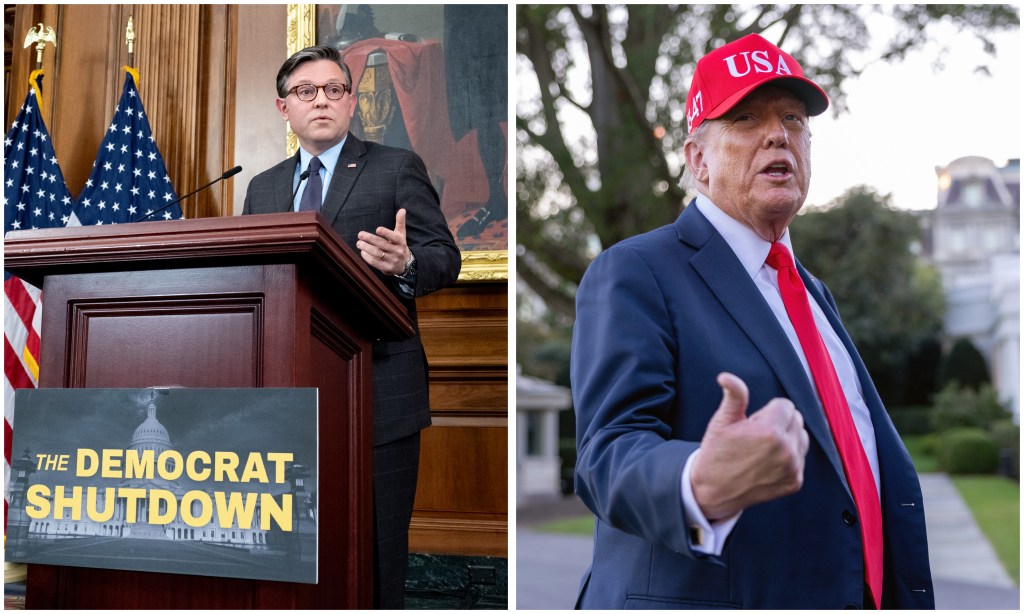On Monday, House Speaker Mike Johnson indicated that there is no immediate pressure to address the soaring costs associated with the Affordable Care Act (Obamacare), which have become a key issue amid the ongoing government shutdown.
This shutdown, now entering its second week, shows no signs of resolution, and Johnson appears unconcerned about negotiating with Democrats to mitigate the rise in premiums for the government-sponsored health insurance program. With annual enrollment set to commence on November 1, up to 22 million Americans may face considerable financial strain from the impending premium increases.
Johnson remarked during an interview with MSNBC, “We have effectively three months to negotiate. In the White House and in the halls of Congress, that’s like an eternity.” He emphasized that new insurance plans would come into effect on January 1, underlining the timeline available for discussions. “We need folks in good faith to come around the table and have that discussion,” he added, pointing out that meaningful negotiations cannot occur while the government remains shut down.
The Speaker’s comments highlight growing concerns among Democrats that Republican leaders, including former President Trump, lack the intention to engage in negotiations over Obamacare. The GOP has historically opposed the program and proposed significant cuts to Medicaid, which has only exacerbated tensions.
Currently, Democrats are advocating for negotiations aimed at either making the program that subsidizes Obamacare premiums permanent or extending its benefits, which are set to expire at the end of the year. With open enrollment imminent, the threat of skyrocketing premiums looms over millions of Americans, many of whom may opt not to renew their healthcare coverage. This could become a critical issue even if Congress manages to later extend some subsidies or roll back some of the price increases.
Unfortunately, with both Johnson and Trump taking a hardline stance against re-entering negotiations, the likelihood of reaching a compromise to end the shutdown appears slim. The Senate is expected to reject a short-term spending measure proposed by Republicans that would fund the government until Thanksgiving. Currently, only three Democrats support this plan, which leaves the GOP significantly short of the 60 votes required to overcome a filibuster.
Trump has also threatened mass layoffs of government employees, mocking Democrats for inadvertently granting the White House additional authority during this shutdown crisis. However, he has yet to follow through on these threats, possibly influenced by recent polls indicating that public sentiment leans toward blaming Republicans for the ongoing stalemate.
As the shutdown persists, a host of challenges are emerging, particularly for vulnerable populations. One significant issue is the imminent depletion of funds for a food aid program known as WIC, which serves over 6 million low-income mothers and young children. Experts warn that without federal funding, states will need to allocate their own resources to keep the program operational or face its closure.
The Special Supplemental Nutrition Program for Women, Infants, and Children (WIC), which provides $8 billion in funding for essential items such as infant formula, fresh fruits and vegetables, and milk, is facing a financial crisis. Following the failure to secure expected funding on October 1, the program is now relying on a $150 million contingency fund that is on the verge of running out.
As the situation threatens to affect millions who rely on these critical services, both sides of the aisle seem entrenched in their positions, complicating any potential paths to bipartisan solutions. With the clock ticking down to enrollment and critical programs on the brink, the urgency for a resolution is becoming increasingly clear, yet the political landscape remains deeply divided.






